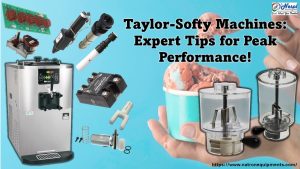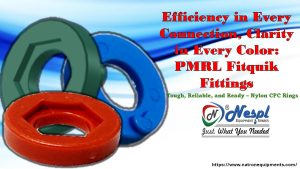For coffee enthusiasts and espresso aficionados, maintaining a clean espresso machine is crucial to brewing consistently great coffee. Regularly cleaning your machine’s brewing group and portafilter is essential for removing oils and residues that can affect the quality of your shots. One of the most effective cleaning methods is backflushing. In this blog, we’ll walk you through the steps of backwashing your espresso machine, ensuring that your beloved coffee maker continues to deliver top-notch brews.
For any doubt & Query write us at: sales3@natronequipments.com
Step 1: Prepare the Cleaning Solution
Before you begin, it’s important to have the right cleaning detergent specifically designed for espresso machines. Always follow the manufacturer’s instructions on the detergent label. Typically, you’ll need to mix the detergent with warm water in a separate container, as directed.
Step 2: Remove the Portafilter Basket
Start by removing the basket from the portafilter. Rinse it thoroughly under hot water to ensure there are no residual coffee grounds left. Submerge the basket in the detergent solution, allowing it to soak.
Step 3: Insert the Blind Filter
A blind filter is essential for this cleaning process and is used in place of the regular filter basket with holes. This method ensures that the detergent solution circulates through the group head for a thorough clean.
Must Buy: https://www.natronequipments.com/coffee-industry/semi-automatic-machine-parts/Blind-filters
Step 4: Begin the Backwash Cycle
Insert the portafilter with the blind filter into the group head. Depending on your espresso machine, the duration of the backwash cycle may vary. Follow the manufacturer’s instructions carefully to ensure optimal cleaning.
Step 5: Rinse the Group Head
After the backwash cycle is complete, use a vacuum breaker to remove the blind filter and portafilter. Rinse the group head thoroughly with hot water to remove any detergent residues, ensuring a clean and residue-free machine.
Step 6: Clean the Portafilter and Basket
Rinse the portafilter basket under hot water after removing it from the detergent solution. Make sure all coffee oils and residue are removed from the portafilter by scrubbing it with a brush.
Step 7: Rebuild and Test
To confirm that the portafilter and basket are completely clean, run a few shots of water through the group head. This will also help in clearing any remaining detergent from the system.
Regularly backwashing your espresso machine is essential for maintaining its efficiency, preserving the quality of your coffee shots, and prolonging the lifespan of your beloved coffee maker. To ensure that you properly backflush your machine, always refer to the manufacturer’s instructions for specific guidance.
Conclusion:
Incorporating backflushing into your coffee machine maintenance routine is a simple yet highly effective way to ensure your espresso maker remains in top working condition. By following these steps and paying close attention to the manufacturer’s recommendations, you can keep your coffee machine clean, your coffee quality consistent, and your espresso machine running smoothly for years to come. Don’t skip this important step if you’re serious about brewing the perfect cup of coffee every time. Your taste buds will thank you!
Must Read: https://www.natronequipments.com/blog/back-flushing/







